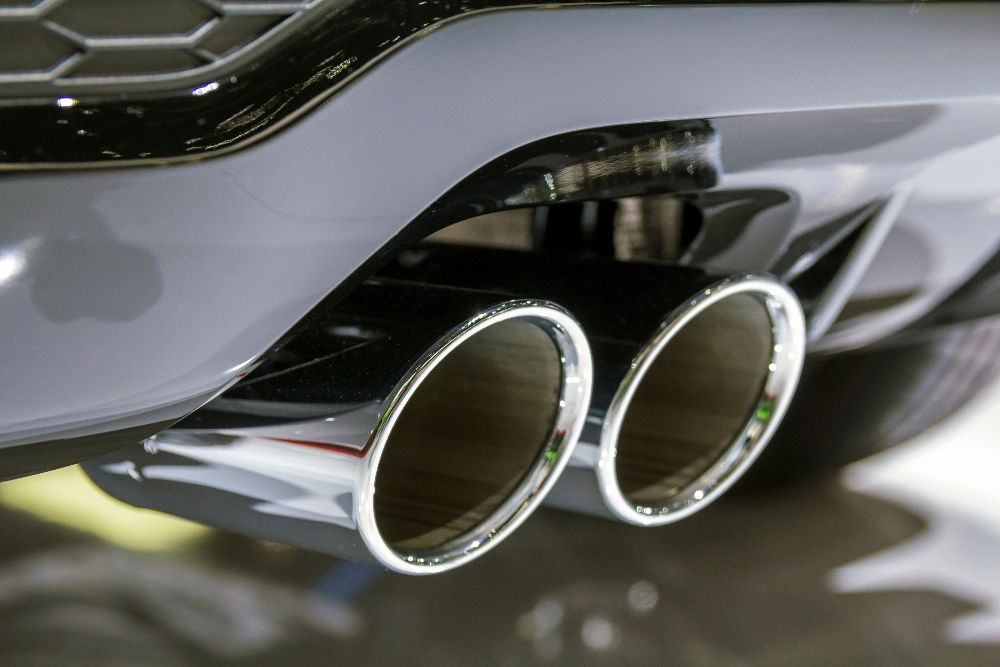How Britain Invented the Perfect Car Sound: The Glorious History of Performance Exhausts

11 Jul 2025
British car culture has always been about the pursuit of perfection - from speed to form to minute design details to sound. Yes, the sound of the car is as important as the way it looks and drives. Or maybe even more important. This is the story of our obsession with performance exhausts and how a simple piece of Victorian legislation accidentally created one of the world's most passionate automotive subcultures.
Sound divides us. It separates the true believers from the noise complainers, the petrolheads from the Prius drivers. And it all comes down to one moment of truth.
A deep, throaty roar splits the air. Your head snaps around, heart rate spikes. There it is - a car pulling away with an exhaust note that could wake the dead in three postcodes. What you do next is significant: freeze in silent awe - welcome to the club, you understand cars; think about calling the council - we have little to talk about!
For those who get it, this sound is the essence of the performance tuning movement that's shaped British motoring since before your great-grandfather was born. It is the expression of horsepower, speed, and the beautiful violence of internal combustion doing what God intended. And it all started when Victorian bureaucrats accidentally let the genie out of the bottle by permitting cars to go faster.
How One Boring Change to an Even More Boring Law Created Car Culture
Before 1896, thanks to the brilliantly named Locomotives Act, cars crawled at 2mph whilst a man with a red flag walked in front. No joking. Then the Locomotives on Highways Act changed everything, raising limits to a dizzying 14mph. Suddenly, with a bit of tinkering, you could make your car go seven times faster. This mind-blowing speed required a good soundtrack, because what's the point of going fast if nobody knows about it? And since then, performance and sound have been inseparable.
Back in the 1880s, if you wanted your motor carriage to sound like anything other than a sewing machine, you had a problem. Victorian engineers designed exhaust systems with all the passion of accountants doing tax returns.
But the seeds of modern performance culture were quietly and literally taking root when the Roots Brothers invented their blower in 1860 to speed up iron smelting. Gottlieb Daimler looked at this contraption and thought, "Right, let's shove that into a car engine." By the 1920s, supercharging was born.
Things Were Heating Up
The post-war spirit of freedom breathed new life into performance tuning. Britain got serious about making cars go fast and sound bold. Proper companies emerged with proper engineers who treated exhaust design like rocket science.
Janspeed Engineering set up shop in Salisbury in 1962. Initially, it was all about the Mini. János Ódor and his team invented LCB (Long Centre Branch) manifolds with an enlarged middle pipe that created a vortex effect, simulating the pulsing action of the outer pipes. This boosted power across the rev range by using scavenging - exhaust pulses creating vacuum behind themselves, helping pull gases out of cylinders.
Alexander Engineering was de-siamesing exhaust ports - separating adjacent ports that originally shared common walls. Splitting them gave each cylinder its own dedicated exhaust path, eliminating interference.
Downton Engineering became legendary for twin-pipe systems that Daniel Richmond described as "vital" for power extraction. Oselli took it further with gas-flowing - reshaping ports by removing casting marks and smoothing sharp edges. This "black art" required years to perfect, involving precise removal of obstructions whilst avoiding breaking through port walls into water jackets.
The culture was changing too. Café Racers were modifying bikes for speed and style, whilst boy racers turned car modification into tribal identity.
The Day the Fun Police Arrived
The party couldn't last forever. By 1992, the UK mandated catalytic converters on virtually all new petrol cars. Suddenly, that straight-through decat pipe became an outlaw. The Road Traffic Act 1988 made it illegal to modify exhausts to be noisier than type-approved levels, with penalties reaching £2,500. For the first time, the sound of speed came with serious legal consequences.
But British ingenuity adapted. Active exhaust systems emerged, allowing drivers to switch between sound profiles at the touch of a button. Polite and well-behaved for residential areas, savage for track days. Having your cake and eating it too.
Take a Vauxhall Astra with a full 3-inch decat system - the transformation is spectacular. The gentle factory hum gives way to a proper motorsport soundtrack that announces your intentions from miles away. It's not subtle, but subtle never won a race.
This Scene Is Absolutely Booming
Today it's bigger than ever. DIY nutters in garden sheds, posh boutique garages, even the corporate giants - all chasing the perfect sound. Exhaust listings on our platform hit nearly 800% growth in just one month, and everyone's at it now.
It’s not a low-cost hobby, but you don't need a fortune either. A Cobra system for an Audi A1 costs £120 and transforms the car completely. From £15 brackets to £400 full systems, performance became democratic. Students can afford to make their Fiestas sound like fighter jets. And God, they do!
Walk through any car meet today and you'll hear the DNA of those 1960s innovations in every perfectly tuned note. The LCB manifolds, the gas-flowing techniques, the twin-pipe systems - they're all there, evolved but fundamentally unchanged.
Companies like Milltek Sport, founded in Derby in 1983, perfected civilised performance with valve-controlled systems. Cobra Sport continues the homegrown legacy, proving proper British engineering beats marketing fluff every time. Slovenia's Akrapovič might dominate the titanium market with Formula One technology, but they learned from the same principles those post-war British pioneers established.
The Last Hurrah Before Electric Silence
We're living through the final chapter of the internal combustion engine's reign. The UK's 2030 ban on pure petrol and diesel cars has created urgency - a race against time to perfect the engine roar before electric silence takes over.
Electric vehicles are changing everything, but they've accidentally proven how vital sound is to driving. Watch manufacturers desperately trying to recreate that emotional connection through speakers and synthesizers - proof that those early rebels were absolutely right about the soul of the machine.
For us here at ifndautoparts, exhaust tuning is all about keeping alive the sound that separates the true passion from the Saturday shopping drive. Our community is full of masterful tuners who know their trade inside out and are ready to share the knowledge and the parts to preserve this heritage. Long may it roar!
11 Jul 2025
Tags

